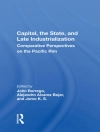In recent years ’smartness‘ has risen as a buzzword to characterize novel urban policy and development patterns. As a result of this, debates around what ’smart‘ actually means, both theoretically and empirically, have emerged within the interdisciplinary arenas of urban and regional studies. This book explores the changes in discourse, rationality and selected responses of smartness through the theme of ‚transition.‘
The concept of transition provides the broader context and points of reference for adopting smartness in reconciling competing interests and agendas in city-regional governance. Using case studies from around the world, including North America, Europe and South Africa, the authors link external regime transition in societal values and goals with internal moves towards smartness. While reflecting the growing integration of overarching themes and analytical concerns, this volume further develops work on smartness, smart growth, transition, city-regionalism, governance and sustainability.
Smart Transitions in City Regionalism explores how smart cities and city regions interact with conventional state structures. It will be of great interest to postgraduates and advanced undergraduates across urban studies, geography, sustainability studies and political science.












